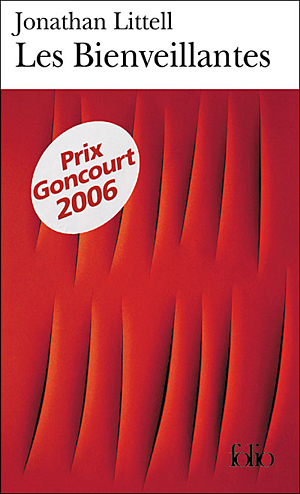 Jonathan Littell’s second novel, The Kindly Ones, has gotten a good deal of attention. There has been no shortage of reviews, from which composite one can glean a picture of the book and of the author’s ambition. I should say I have read some of the novel, have not finished it–though I have had long conversations about it with someone close to me as she marches slowly through its pages. I’ll finish the book at some point, though not with the expectation that I’ll find a novel I’ll treasure (of course I welcome the possibility of being surprised).
Jonathan Littell’s second novel, The Kindly Ones, has gotten a good deal of attention. There has been no shortage of reviews, from which composite one can glean a picture of the book and of the author’s ambition. I should say I have read some of the novel, have not finished it–though I have had long conversations about it with someone close to me as she marches slowly through its pages. I’ll finish the book at some point, though not with the expectation that I’ll find a novel I’ll treasure (of course I welcome the possibility of being surprised).
The long review essay of the novel that so far speaks most to my ideas of how a novel works or doesn’t is by Ruth Franklin. I often disagree with Franklin’s takes, but find such disagreements profitable: they clarify why I believe what I do, while nonetheless allowing me to respect what she does.
Franklin sounds only sensible in her report of the Littell. Early, she tells us:
The Kindly Ones is not an important novel, because it fails absolutely to add anything of significance to our understanding of its subject, which is nothing less than the most perplexing question of modernity. How could human beings undertake–and successfully carry out–an unprecedented systematic program of mass extermination against other human beings? Over the course of the sixty-four years since the end of World War II, this question has been examined energetically, if not exhaustively, by historians, philosophers, novelists, poets, psychologists, and politicians. In her seminal account of the Eichmann trial, Hannah Arendt set the terms of the debate by arguing that the majority of the Nazis were not– as psychologists had previously believed– monsters in some form: sadists, psychopaths, perverts, or homicidal maniacs. They were, the overwhelming majority of them, unremarkable men, “small cogs” in a killing machine, who showed little initiative of their own but were prepared to obey orders unquestioningly and then go to dinner.
Franklin is also at work on a book about the literature of the Holocaust, so the Littell is located within her current critical wheelhouse. I’ll be curious to see how this essay gets changed to fit the exegeses of her finished book–but for now I suggest you read her “Night and Cog” as your weekend read.





